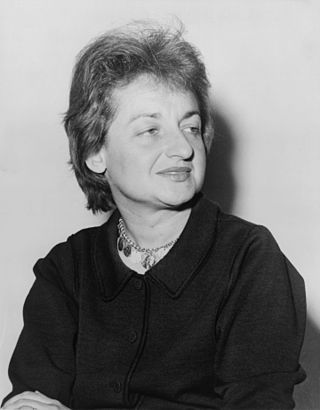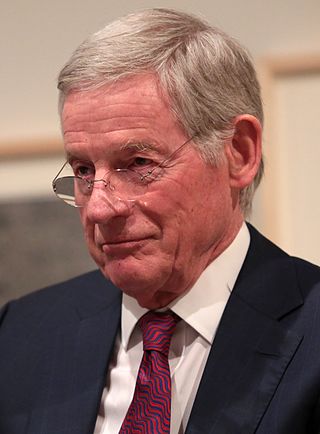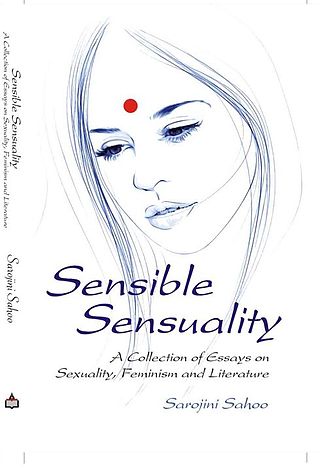Feminism is a range of socio-political movements and ideologies that aim to define and establish the political, economic, personal, and social equality of the sexes. Feminism holds the position that modern societies are patriarchal—they prioritize the male point of view—and that women are treated unjustly in these societies. Efforts to change this include fighting against gender stereotypes and improving educational, professional, and interpersonal opportunities and outcomes for women.
Radical feminism is a perspective within feminism that calls for a radical re-ordering of society in which male supremacy is eliminated in all social and economic contexts, while recognizing that women's experiences are also affected by other social divisions such as in race, class, and sexual orientation. The ideology and movement emerged in the 1960s.

Simone Lucie Ernestine Marie Bertrand de Beauvoir was a French existentialist philosopher, writer, social theorist, and feminist activist. Though she did not consider herself a philosopher, nor was she considered one at the time of her death, she had a significant influence on both feminist existentialism and feminist theory.

Betty Friedan was an American feminist writer and activist. A leading figure in the women's movement in the United States, her 1963 book The Feminine Mystique is often credited with sparking the second wave of American feminism in the 20th century. In 1966, Friedan co-founded and was elected the first president of the National Organization for Women (NOW), which aimed to bring women "into the mainstream of American society now [in] fully equal partnership with men.”
Equality feminism is a subset of the overall feminism movement and more specifically of the liberal feminist tradition that focuses on the basic similarities between men and women, and whose ultimate goal is the equality of both genders in all domains. This includes economic and political equality, equal access within the workplace, freedom from oppressive gender stereotyping, and an androgynous worldview.
Second-wave feminism was a period of feminist activity that began in the early 1960s and lasted roughly two decades, ending with the feminist sex wars in the early 1980s and being replaced by third-wave feminism in the early 1990s. It occurred throughout the Western world and aimed to increase women's equality by building on the feminist gains of the late 19th and early 20th centuries.
Sex-positive feminism, also known as pro-sex feminism, sex-radical feminism, or sexually liberal feminism, is a feminist movement centering on the idea that sexual freedom is an essential component of women's freedom. They oppose legal or social efforts to control sexual activities between consenting adults, whether they are initiated by the government, other feminists, opponents of feminism, or any other institution. They embrace sexual minority groups, endorsing the value of coalition-building with marginalized groups. Sex-positive feminism is connected with the sex-positive movement. Sex-positive feminism brings together anti-censorship activists, LGBT activists, feminist scholars, producers of pornography and erotica, among others. Sex-positive feminists believe that prostitution can be a positive experience if workers are treated with respect, and agree that sex work should not be criminalized.

The Second Sex is a 1949 book by the French existentialist philosopher Simone de Beauvoir, in which the author discusses the treatment of women in the present society as well as throughout all of history. Beauvoir researched and wrote the book in about 14 months between 1946 and 1949. She published the work in two volumes: Facts and Myths, and Lived Experience. Some chapters first appeared in the journal Les Temps modernes.
Feminist theory is the extension of feminism into theoretical, fictional, or philosophical discourse. It aims to understand the nature of gender inequality. It examines women's and men's social roles, experiences, interests, chores, and feminist politics in a variety of fields, such as anthropology and sociology, communication, media studies, psychoanalysis, political theory, home economics, literature, education, and philosophy.

The Female Eunuch is a 1970 book by Germaine Greer that became an international bestseller and an important text in the feminist movement. Greer's thesis is that the "traditional" suburban, consumerist, nuclear family represses women sexually, and that this devitalises them, rendering them eunuchs. The book was published in London in October 1970. It received a mixed reception, but by March 1971, it had nearly sold out its second printing. It has been translated into eleven languages.
Feminism is a collection of movements aimed at defining, establishing, and defending equal political, economic, and social rights for women. Existentialism is a philosophical and cultural movement which holds that the starting point of philosophical thinking must be the individual and the experiences of the individual, that moral thinking and scientific thinking together are not sufficient for understanding all of human existence, and, therefore, that a further set of categories, governed by the norm of authenticity, is necessary to understand human existence. This philosophy analyzes relationships between the individual and things, or other human beings, and how they limit or condition choice.

Harvey Claflin Mansfield Jr. is an American political philosopher. He was the William R. Kenan Jr. Professor of Government at Harvard University, where he taught since 1962. He has held Guggenheim and NEH Fellowships and has been a Fellow at the National Humanities Center. In 2004, he was awarded the National Humanities Medal by President George W. Bush and delivered the Jefferson Lecture in 2007.

Sexual Politics is the debut book by American writer and activist Kate Millett, based on her PhD dissertation at Columbia University. It was published in 1970 by Doubleday. It is regarded as a classic of feminism and one of radical feminism's key texts, a formative piece in shaping the intentions of the second-wave feminist movement. In Sexual Politics, an explicit focus is placed on male dominance throughout prominent 20th century art and literature. According to Millett, western literature reflects patriarchal constructions and the heteronormativity of society. She argues that men have established power over women, but that this power is the result of social constructs rather than innate or biological qualities.

Germaine Greer is an Australian writer and public intellectual, regarded as one of the major voices of the second-wave feminism movement in the latter half of the 20th century.
Jacqueline "Jacqui" Michot Ceballos is an American feminist and activist. Ceballos is the former president of New York Chapter of the National Organization for Women and founder of the Veteran Feminists of America organization which documents the history of Second wave feminism and pioneer feminists. Ceballos' 1971 debate on sexual politics with Norman Mailer and Germaine Greer is recorded in the 1979 film Town Bloody Hall. Ceballos is also featured in the feminist history film She's Beautiful When She's Angry.
Gender essentialism is a theory which attributes distinct, intrinsic qualities to women and men. Based in essentialism, it holds that there are certain universal, innate, biologically based features of gender that are at the root of many of the group differences observed in the behavior of men and women.
For the Canadian writer and editor, see Nancy Bauer.

The Man of Reason: "Male" and "Female" in Western Philosophy is a book about the association between maleness and reason in western philosophy by the Australian philosopher Genevieve Lloyd. The work received positive reviews. It has been called a twentieth century classic of feminist thought, and is widely read in the Nordic countries.

Sensible and Sensuality is a collection of essay by Indian feminist writer Sarojini Sahoo. Published in 2010, the book contains the author's view on feminism. Sahoo is a key figure and trend-setter of feminism in contemporary Indian literature. She has been listed among 25 exceptional women of India by Kindle English magazine of Kolkata. For Sahoo, feminism is not a "gender problem" or confrontational attack on male hegemony and, as such, differs from the feminist views of Virginia Woolf or Judith Butler.

The feminist movement, also known as the women's movement, refers to a series of social movements and political campaigns for radical and liberal reforms on women's issues created by inequality between men and women. Such issues are women's liberation, reproductive rights, domestic violence, maternity leave, equal pay, women's suffrage, sexual harassment, and sexual violence. The movement's priorities have expanded since its beginning in the 1800s, and vary among nations and communities. Priorities range from opposition to female genital mutilation in one country, to opposition to the glass ceiling in another.










